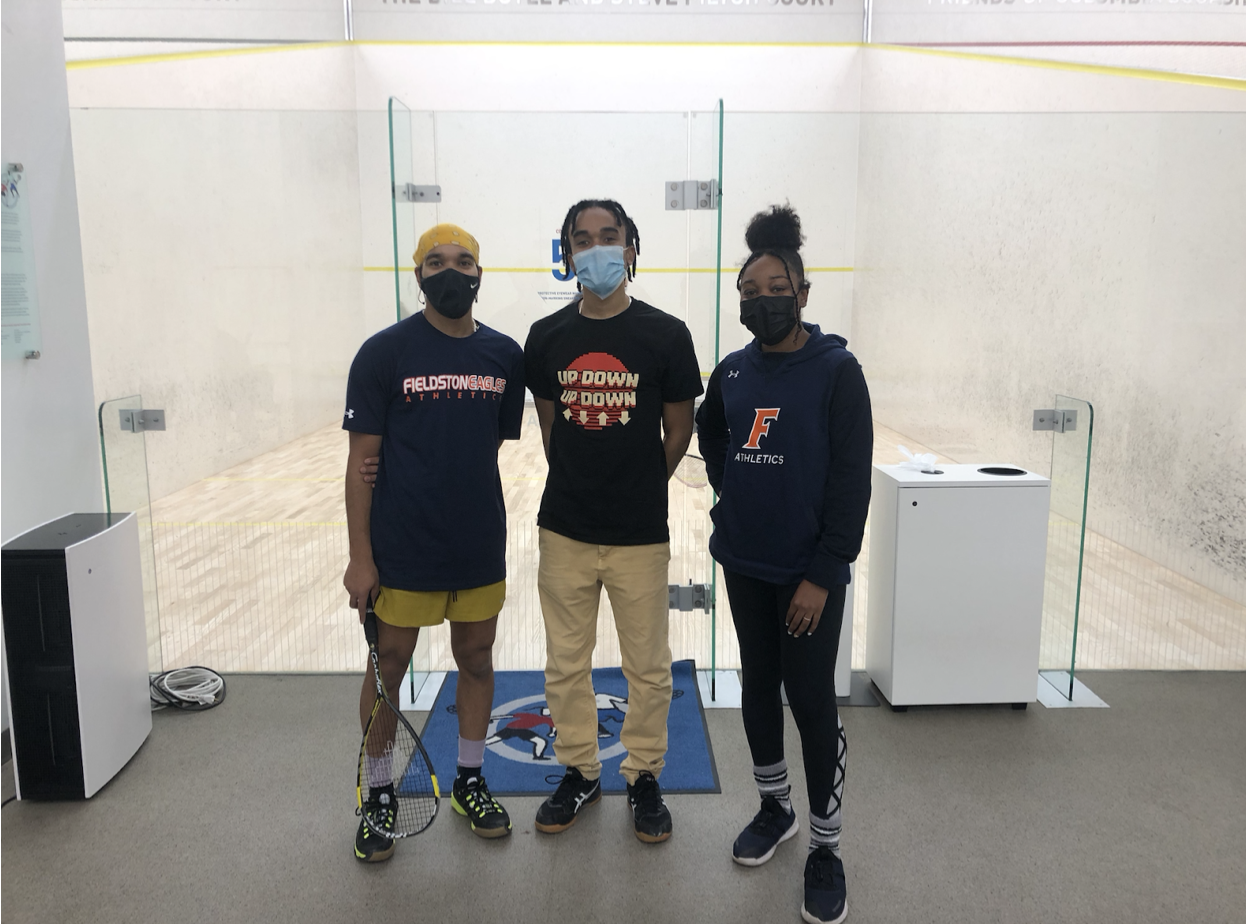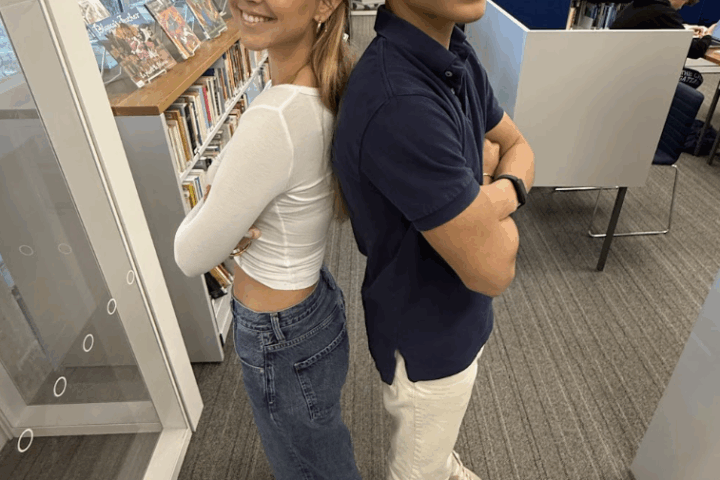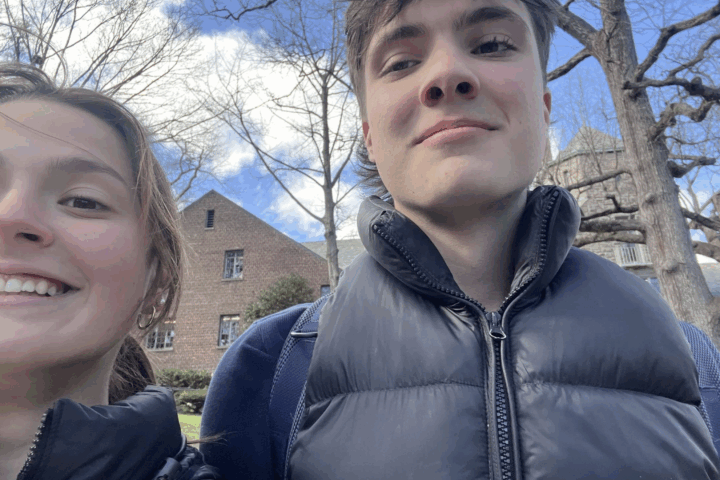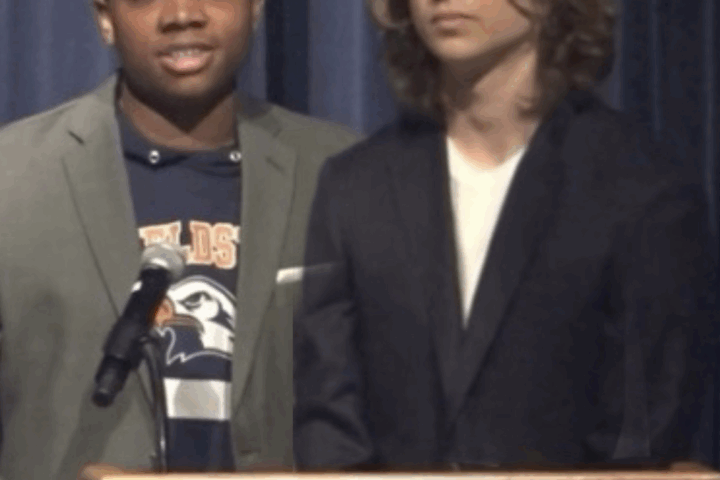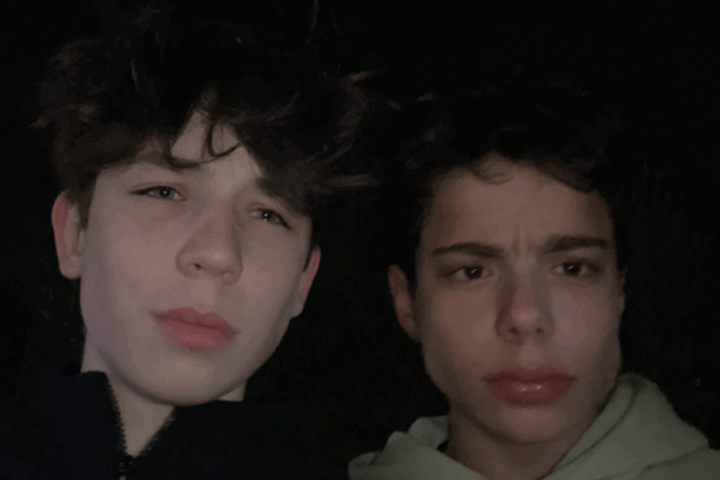Anyone who visits a Fieldston squash team’s practice can see that Fieldston squash is a unique experience. Its practices, which are held in the StreetSquash center in Harlem, show the strong community, passion and spirit that builds the foundation of the team.
Creating this environment is not an easy feat. Although the team isn’t very large, the players possess a wide range of skills. While some players have been playing squash their whole life, others hadn’t picked up a squash racket until the beginning of this season.
At a Fieldston squash practice, inexperienced players can seek help from their more experienced teammates. These experienced players are more than happy to help out, answering their questions with patience and sharing proper techniques and secrets. But at the same time, players are in a competitive environment, where even the most experienced players are challenged and have to work hard.
This masterful balance of inexperienced and experienced players is maintained by the squash team’s three young, talented coaches. First year head coach Joshua Gary, along with his co-coaches Liz Rose and Terrance Rose, have transformed Fieldston squash into a tight-knit, diverse and competitive team. They have done this by allowing each player to learn and thrive individually and as a team.
I had the opportunity to interview Coach Gary about his prior experiences with squash and his mission for the Fieldston squash team.
Ben Lindenbaum: What first made you interested in squash? Why do you like squash?
Joshua Gary: What first made me interested in squash was that it was something outside of the norm. Where I’m from, we usually played basketball and baseball because of the demographic. So squash was something that I had never heard of when it was introduced to me as an incoming seventh grader. And so I tried it out and being someone very competitive and who doesn’t give up, it was a struggle the first time but I really fell in love with it and the fact that it gave me a challenge.
BL: Where were you introduced to squash?
JG: I found squash here through StreetSquash. They have a summer program in which I was first introduced to squash. And from there I stayed all throughout middle school and high school.
BL: I noticed that you were a student at StreetSquash, and then you worked at StreetSquash. How did you make that transition?
JG: Yes. So during my time at college, I would always come and volunteer (at StreetSquash) and it just so happened that there was a Newark branch program. I love to be a part of something that needs structure and is growing, so I applied for the position and got it and was able to be the squash director for about five and a half years.
BL: What is the mission of StreetSquash?
JG: The idea is to give kids another opportunity to find a gateway to get into college and give them as many opportunities as possible. Whether it’s squash related or academically related, this is a pathway into college.
BL: Outside of StreetSquash, what else did you do before becoming the coach of Fieldston squash?
JG: Before taking the job at Fieldston, I worked at the Manhattan Community Squash Center. I was also one of the head pros for the Hudson Guild Program, something similar to what Street Squash does, an after school enrichment program. These kids were much younger, they were in elementary school and coming into middle school and (squash) was new to them. It was fun because it was predominantly students of color being introduced to something that they had never heard of.
BL: Why did you want to be the Fieldston squash coach?
JG: Over the years, I’ve seen the growth in the Fieldston team because I would coach privately and I would have league matches and I would always see the team practicing. I realized there are a lot of girls on the team and I wanted to be able to build on that because it shouldn’t be overlooked. If it’s a team, it should be both males and females and it needs to be cohesive. Also, Fieldston squash is not necessarily a start up, but it’s an up and coming program. Those are things I love to work on. It’s a huge project that I know I’m very good at. I have a lot to offer as far as experience with kids who have never played, kids who are very experienced and building relationships with parents, students and faculty. All those things are things that I am very good at.
BL: What goals do you have for Fieldston squash this season?
JG: So goals. For one, I believe everybody improving their game from last season is a huge thing. I don’t want students to get complacent as to where they were before just because they may be in the higher grade or may have some seniority over some other students who have never played. I also haven’t looked at the team’s record in the past but I’m hoping to speak with everyone about that. You know, how did we play against certain teams, what do they want to look forward to this season and just keep the team in a positive direction. Even if we have a tough loss, or one of the students has a tough loss, just letting them know that this isn’t the end, that there’s another match, there’s another practice, there’s always something to work on and this is why we practice, to improve. Everybody’s not perfect, even as a coach I’m not perfect. There are still things I need to learn and vice versa. I teach you and you teach me.
Other important goals for the team are to build a strong foundation of leaders and a sense of family and belonging amongst the players as well as get other students interested in the coming years.
BL: When you’re not playing squash or coaching squash, what do you like to do?
JG: That’s funny, I’m always playing squash.
When I’m not playing or coaching, outside of being a dad and taking care of my children, I like to read a lot. Not necessarily random things, but astrology, some science, building on my communication skills. Drawing with my son, showing him how to draw. Shopping for sneakers. It’s a gift and a curse. And trying new foods.
BL: Do you have anything else you would like to add about the Fieldston squash team or your experience in squash?
JG: I’m just really excited. Coaching is my passion and I realized that at a relatively young age. I’m just excited to push the students to their potential and hopefully I’m here next season and I can continue to push them to give it their all. Regardless of if they feel like they can’t go any higher, there’s always something that can be done.

